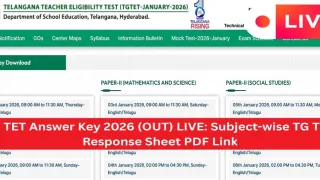Eighth Pay Commission Updates:The central government has finally formally constituted the Eighth Pay Commission. This commission will review and recommend revisions to the salaries, pensions, and allowances of central government employees and pensioners.
What is the work of the Eighth Pay Commission
The government has also notified the Commission's Terms of Reference (ToR). Under these rules, the Commission will:
Review the existing pay structure, service conditions, and retirement benefits.
Make new recommendations based on the country's financial situation, inflation, and economic growth.
While revising pay, it will focus on maintaining a balance between the government's financial burden and employees' income.
The Pay Commission is constituted every ten years to determine the salaries of government employees in line with inflation and other economic factors.
When will the 8th Pay Commission be implemented
The Seventh Pay Commission was implemented on January 1, 2016. Similarly, the Eighth Pay Commission is expected to become effective on January 1, 2026. If the Commission's report or implementation is delayed, employees may receive increased salaries along with arrears. The government has given the Commission 18 months.
How much will salary and pension increase
The most important factor will be the Fitment Factor—the ratio between the old and new pay structures. The Seventh Pay Commission set the Fitment Factor at 2.57. According to experts, it could range between 2.8 and 3.0 in the Eighth Pay Commission. This means a significant increase in employees' basic pay is possible.
The Eighth Pay Commission aims to ensure that salary increases for government employees are fiscally sustainable, without excessive pressure on the government budget or impacting employees' actual income. Overall, this decision is being considered a major relief and encouraging news for central government employees and pensioners.























